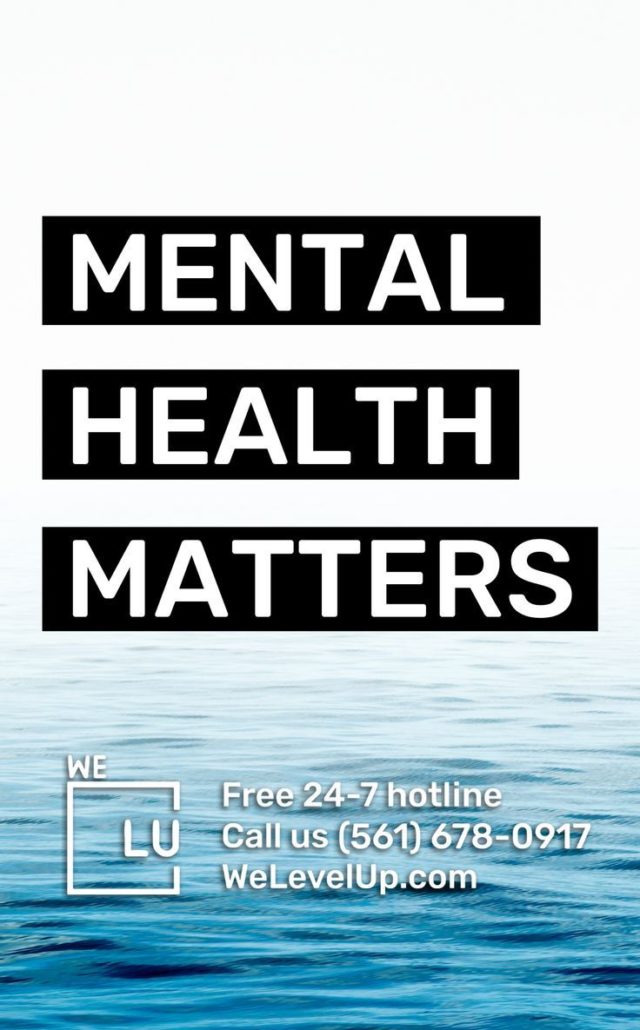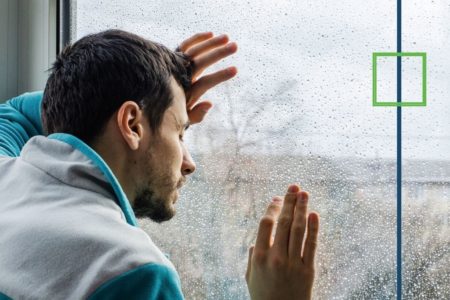Diagnosing Depression
A depression diagnosis is often challenging to make because clinical depression can show up in so many different ways. For instance, some clinically depressed people seem to withdraw into apathy. Others may become irritable or even agitated. Eating and sleeping patterns can be exaggerated. Clinical depression may cause someone to sleep or eat excessively or almost eliminate those activities.
To effectively diagnose and treat depression, the doctor must hear about specific symptoms of depression. They may use a series of standard questions to screen for depression. While a physical examination will reveal a patient’s overall state of health, by talking with a patient, a doctor can learn about other things that are relevant to making a depression diagnosis. A patient, for instance, can report on such things as daily moods, behaviors, and lifestyle habits.
The DSM-5 outlines the following criteria to make a diagnosis of depression. The individual must be experiencing five or more symptoms during the same 2-week period, and at least one of the symptoms should be either (1) depressed mood or (2) loss of interest or pleasure.
- Depressed mood most of the day, nearly every day.
- Markedly diminished interest or pleasure in all, or almost all, activities most of the day, nearly every day.
- Significant weight loss when not dieting or weight gain, or decrease or increase in appetite nearly daily.
- A slowing down of thought and a reduction of physical movement (observable by others, not merely subjective feelings of restlessness or being slowed down).
- Fatigue or loss of energy nearly every day.
- Feelings of worthlessness or excessive or inappropriate guilt nearly every day.
- Diminished ability to think or concentrate, or indecisiveness, nearly every day.
- Recurrent thoughts of death, recurrent suicidal ideation without a specific plan, or a suicide attempt or a detailed plan for committing suicide.
To receive a diagnosis of depression, these symptoms must cause the individual clinically significant distress or impairment in social, occupational, or other important areas of functioning. The symptoms must also not result from substance abuse or another medical condition.
Diagnosing Anxiety Disorder
The diagnosis of social anxiety disorder is based on the DSM-5. The patient must have a marked, persistent fear of or anxiety about one or more social situations in which others may judge them. The symptoms must persist for six or more months. The fear must involve thoughts of humiliation, embarrassment, rejection, or offensiveness. Also, all of the following four factors must be present:
- The same social situations nearly always trigger anxiety or fear.
- The patient actively avoids these situations.
- Considering usual sociocultural factors, the anxiety or fear is out of proportion to the actual threat.
- The anxiety, fear, and avoidance cause significant distress or impair social or occupational functioning.
The final diagnostic factor is that anxiety and fear cannot be more correctly characterized as a different mental disorder, such as agoraphobia, body dysmorphic disorder, or panic disorder.

***The DSM-5 or Diagnostic and Statistical Manual of Mental Disorders, Fifth Edition, is the 2013 update to the Diagnostic and Statistical Manual of Mental Disorders, the taxonomic and diagnostic tool published by the American Psychiatric Association.
World-class, Accredited, 5-Star Reviewed, Effective Mental Health Dual Diagnosis Programs. Complete Integrated Inpatient Rehab with Free Post Discharge Therapy Planning.
CALL (855) 940-6125End the Emotional Pain Rollercoaster. Gain Stability & Happiness Through Recovery Treatment. Start Mental Health Counseling Today. Get Free No-obligation Guidance by Behaviroal Health Specialists Who Understand Mental Health Recovery.
Lifestyle Remedies for Social Anxiety and Depression
Although social anxiety disorder and depression generally require help from a mental health professional or qualified psychotherapist, you can try some of these techniques to handle situations that are likely to trigger symptoms:
- Learn stress-reduction skills.
- Get physical exercise or be physically active regularly.
- Get enough sleep.
- Eat a healthy, well-balanced diet.
- Avoid alcohol.
- Limit or avoid caffeine.
- Participate in social situations by reaching out to people you feel comfortable with.
At first, being social when you’re feeling anxious and depressed is challenging. As hard or painful as it may seem initially, don’t avoid situations that trigger your symptoms. By regularly facing these situations, you’ll continue to build and reinforce your coping skills. These strategies can help you begin to face circumstances that make you nervous:
- Prepare for conversation, for instance, by reading about current events to identify exciting or interesting stories you can talk about.
- Focus on personal qualities you like about yourself.
- Practice relaxation exercises.
- Learn stress management techniques.
- Set realistic social goals.
- Pay attention to how often the embarrassing situations you’re afraid of occur. You may notice that the scenarios you fear usually don’t come by.
- When embarrassing situations happen, remind yourself that your feelings will pass and you can handle them until they do. Most people around you either don’t notice or don’t care as much as you think, or they’re more forgiving than you assume.
Experience Transformative Recovery at the We Level Up Treatment Center.
See our authentic success stories. Get inspired. Get the help you deserve.



Start a New Life
Begin with a free call to a behavioral health treatment advisor. Learn more about our dual-diagnosis programs. The We Level Up treatment center network delivers recovery programs that vary by each treatment facility. Call to learn more.
- Personalized Care
- Caring Accountable Staff
- World-class Amenities
- Licensed & Accredited
- Renowned w/ 5-Star Reviews
We’ll Call You
Best Medication for Social Anxiety and Depression
Various treatment options can help people manage their symptoms, gain confidence, and overcome social anxiety. Social anxiety may persist throughout life if left untreated — though it may feel better or worse at certain times. Healthcare professionals will usually recommend treatment with psychotherapy, medication, or both.
Psychotherapy
Psychotherapy, or talking therapy, helps people understand their experiences and develop effective coping methods. There are many types of psychotherapy, including CBT, interpersonal, psychodynamic, and family therapy.
CBT, or cognitive behavioral therapy, is the standard gold treatment. It aims to help people recognize and change negative thoughts or beliefs about social situations. It also seeks to change people’s behaviors or reactions to situations that trigger anxiety.
CBT can help people recognize that their thoughts, not those of others, can determine how they react and behave. Exposure therapy, or cognitively delivered exposure, can also help. With this approach, the person gradually works up to facing the situations they fear with a therapist and in a safe environment.
Medications
A range of medications can help people manage the symptoms of social anxiety and depression. The three main types are antianxiety medications, antidepressants, and beta-blockers. Doctors usually prescribe these drugs for specific situations, such as having to give a presentation, but not for ongoing treatment.
To reduce the risk of medication side effects, your healthcare provider may start you at a low dose of medication and gradually increase your prescription to a total dosage. It may take weeks to months of treatment for your symptoms to improve noticeably.

Don’t give up if your social anxiety and depression treatment doesn’t work quickly. You can continue to make strides in psychotherapy over several weeks or months. Learning new skills to help manage your anxiety and depression takes time. And finding the proper medication for your situation can take trial and error.
For some people, the symptoms of social anxiety disorder may fade over time, and medication can be discontinued. Others may need to take medication for years to prevent a relapse. To make the most of treatment, keep your medical or therapy appointments, challenge yourself by setting goals to approach social situations that cause you anxiety, take medications as directed, and talk to a healthcare provider about any changes in your condition.
Call We Level Up FL now for a free mental health assessment! In addition, for the substance abuse or dual diagnosis approach, our inpatient treatment, inpatient medical detox, and residential primary addiction treatment may be available at our affiliated facility. For more treatment resources, call We Level Up Florida about your symptoms, and we can help you determine the cause and develop a treatment plan.
We Level Up FL provides world-class care with round-the-clock medical professionals to help you cope. If you have any questions about social anxiety and depression or are looking for mental health treatment options, connect with one of our mental health counselors. Make this your opportunity to reclaim your life. Your call is private and confidential, and there is never any obligation.
Depression and Social Anxiety Fact Sheet
For some people with social anxiety, the isolation it brings can come with feelings of inadequacy, sadness, or even shame, sometimes mimicking or causing depression. Social anxiety that leads to a diagnosis like major depressive disorder (MDD) can sometimes mean dealing with anxiety and depression symptoms that are harder to treat.
Depression Disorder
Depression is a severe medical illness. It’s more than feeling sad or “blue” for a few days. If you are one of the more than 19 million individuals in the United States who have depression, the feelings do not go away. They persist and interfere with your everyday life. Symptoms can include:
- Feeling sad or “empty.”
- Loss of interest in favorite activities
- Overeating, or not wanting to eat at all
- Not being able to sleep or sleeping too much
- Feeling very tired
- Feeling hopeless, irritable, anxious, or guilty
- Aches or pains, headaches, cramps, or digestive problems
- Thoughts of death or suicide
There are effective treatments for depression, including antidepressants, talk therapy, or both.
To be diagnosed with depression, your provider will ask about your medical history and symptoms. Your answers can help your provider diagnose depression and determine its severity.
Blood and urine tests may be done to rule out other medical conditions with symptoms similar to depression.
Social Anxiety Disorder
Social anxiety disorder is an intense, persistent fear of being watched and judged by others. This fear can affect work, school, and other daily activities. It can even make it hard to make and keep friends. The good news is social anxiety disorder is treatable.
The fear that people with social anxiety disorder have in social situations is so intense that they feel it is beyond their control. For some people, this fear may get in the way of going to work, attending school, or doing everyday things. Other people may be able to accomplish these activities but experience a great deal of fear or anxiety when they do. People with a social anxiety disorder may worry about engaging in social situations for weeks before they happen. Sometimes, they avoid places or events that cause distress or generate feelings of embarrassment.
Social anxiety disorder usually starts in late childhood and may resemble extreme shyness or avoidance of situations or social interactions. It occurs more frequently in females than males, and this gender difference is more pronounced in adolescents and young adults. Without treatment, social anxiety can last for many years or even a lifetime.

When to Contact a Medical Professional
See your provider if you or someone you know has symptoms of depression and anxiety disorders. It is essential to seek help immediately if you or someone you know is having thoughts of suicide.
You can also call 911 or the local emergency number or go to the hospital emergency room. DO NOT delay.
If someone you know has attempted suicide, call 911 or the local emergency number immediately. DO NOT leave the person alone, even after you have called for help.
Learn more with the Generalized Anxiety Disorder PDF download below. Source: Mirecc.va.gov.
Social Anxiety Disorder and Depression Statistics
Social anxiety disorder (SAD) is a chronic disorder significantly affecting the lifestyle of individuals, often preventing the individual from available opportunities and making the person disabled at work and in social life. Adults with social anxiety disorder are more likely to experience lower education attainment, lower wages or unemployment, and poor relationship quality with family. Persons with SAD have frequent comorbid psychiatric disorders such as depression and substance use disorders and are at increased risk of suicide. As SAD has onset at an early age and long duration of illness, untreated individuals are likely to suffer for a long time.
4-8%
Recent estimates indicate that between 4% and 8% of adults in the general population suffer from SAD in a given year, with even higher rates when lifetime prevalence is considered.
Source: NCBI
11.37%
The frequency of social anxiety disorder is 11.37%, and depression is 8.96%.
Source: NCBI
70%
70% of patients with social anxiety disorder experienced comorbid mental health problems.
Source: NCBI
Top Social Anxiety and Depression FAQs
-
Does social media cause depression and anxiety?
Yes. It can. Research shows that individuals who spend more time on social media may feel more isolated. From another angle, online platforms may also have the potential to damage mental well-being by promoting unreasonable expectations, causing social anxiety and depression.
-
How does social media cause anxiety and depression?
Social media more often increases fear of missing out and feelings of inadequacy, dissatisfaction, and isolation. In turn, these feelings negatively affect your mood and worsen symptoms of depression, anxiety, and stress.
-
Can social anxiety cause depression?
Yes. Social anxiety disorder (SAD) (also known as social phobia) is characterized by an intense fear of social interaction and is often associated with social avoidance and impairments. There is a high risk for depression, substance use disorder, and suicide among them.
Watch The Anxiety Disorder Facts & Anxiety Treatment Programs Informative Video
Video Script
The We Level Up FL mental health center represents a cutting-edge, specialized establishment dedicated to the mental health of its patients. It embodies contemporary values by offering innovative programs for behavioral recovery that establish the benchmark in the field. Located in a serene and meticulously cared-for setting, the facility features beautifully landscaped grounds and outdoor spaces for rejuvenation and serenity.
Discover effective inpatient treatment for Anxiety disorders with the guidance of We Level Up’s expert therapists. Reach out for assistance through our Anxiety helpline.
Search We Level Up FL Social Anxiety and Depression Topics & Resources
Sources
- Wong J, Morrison AS, Heimberg RG, Goldin PR, Gross JJ. Implicit associations in social anxiety disorder: the effects of comorbid depression. J Anxiety Disord. 2014 Aug;28(6):537-46. DOI: 10.1016/j.janxdis.2014.05.008. Epub 2014 Jun 14. PMID: 24983794; PMCID: PMC4134987.
- Caring for Your Mental Health – NIMH/National Institute of Mental Health
- Ratnani IJ, Vala AU, Panchal BN, Tiwari DS, Karambelkar SS, Sojitra MG, Nagori NN. Association of social anxiety disorder with depression and quality of life among undergraduate medical students. J Family Med Prim Care. 2017 Apr-Jun;6(2):243-248. DOI: 10.4103/2249-4863.219992. PMID: 29302525; PMCID: PMC5749064.
- Social Anxiety Disorder: More Than Just Shyness – NIMH/National Institute of Mental Health
- National Institute of Mental Health. Statistics (January 2018). Retrieved from https://www.nimh.nih.gov/health/statistics/index.shtml
- Carpenter JK, Andrews LA, Witcraft SM, Powers MB, Smits JAJ, Hofmann SG. Cognitive behavioral therapy for anxiety and related disorders: A meta-analysis of randomized placebo-controlled trials. Depress Anxiety. 2018 Jun;35(6):502-514. DOI: 10.1002/da.22728. Epub 2018 Feb 16. PMID: 29451967; PMCID: PMC5992015.
- Symptoms of Generalized Anxiety Disorder Among Adults: United States, 2019 – Centers for Disease Control and Prevention (CDC)
- Chand SP, Kuckel DP, Huecker MR. Cognitive Behavior Therapy. [Updated 2022 Sep 9]. In: StatPearls [Internet]. Treasure Island (FL): StatPearls Publishing; 2022 Jan-. Available from: https://www.ncbi.nlm.nih.gov/books/NBK470241/
- What is Cognitive Behavioral Therapy? – https://nij.ojp.gov/topics/articles/what-cognitive-behavioral-therapy National Institute of Justice (NIJ)
- Gautam M, Tripathi A, Deshmukh D, Gaur M. Cognitive Behavioral Therapy for Depression. Indian J Psychiatry. 2020 Jan;62(Suppl 2): S223-S229. DOI: 10.4103/psychiatry.IndianJPsychiatry_772_19. Epub 2020 Jan 17. PMID: 32055065; PMCID: PMC7001356.





